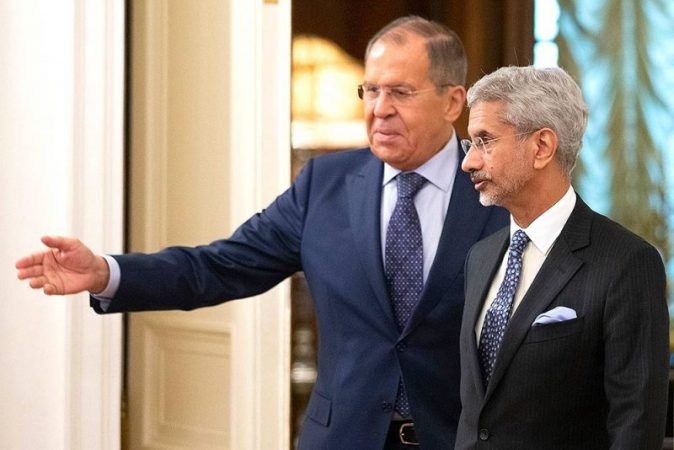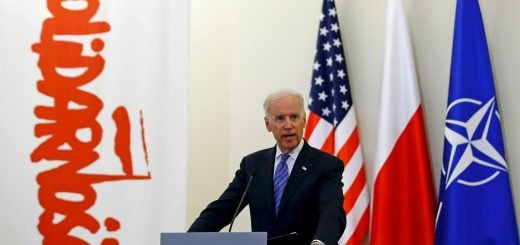India and Russia – A stable friendship amidst the Changing World Order

India and Russia have always enjoyed a warm, cordial, and stable relationship. From Bollywood movies to bilateral deals, the two countries have cultural, political, and economic ties. Indian Prime Minister Shri Narendra Modi, and Russian President, Mr. Vladimir Putin have met 19 times since the former took office in 2014. Regular dialogues and meetings are held between these two strategic partners, and Dr. S. Jaishankar’s recent visit to the Russian Federation was just a continuation of such recurring dialogues.
The External Affairs Minister (EAM), paid an official visit to Russia from 7th- 9th July 2021, with a few things listed on his itinerary. The EAM delivered a speech at the Primakov Institute of World Economy & International Relations in Moscow, met Deputy PM Mr. Yuri Borisov (who is his counterpart for the India-Russia Inter-Governmental Commission on Trade, Economic, Scientific, Technological and Cultural Cooperation (IRIGC-TEC), and lastly, met his Russian Counterpart Mr. Sergey Lavrov for a joint press conference.
Speech at the Primakov Institute of World Economy & International Relations, Moscow
In his address on the ‘India-Russia ties in a changing world’ at the Primakov Institute of World Economy & International Relations, Dr. Jaishankar gave a crux of the India-Russia relationship, areas of partnership, and highlighted the common denominators of stability the two countries enjoy.
The two partners have maintained a cordial relationship since World War II, and look forward to building more cooperative partnerships in the future. Both countries have displayed holistic growth over the past few decades, and are seen as the “first-responders” for many global crises.
The central foundation of the India-Russia relationship is laid on their view of the world as multipolar, with different centers of powers in different regions. This understanding is an important factor contributing to and maintaining a pleasant relationship. Both countries call for a democratic and diverse international order, allowing “sovereign equality of all states”. In order to fulfill this goal, it is first and foremost important that there is ensured bilateral cooperation. The new international order has given rise to a fluid, unstructured world, where differences are bound to arise. In such cases, there is a need to look for practical and “result-oriented cooperation”. India and Russia enjoy the membership of various such international and regional forums, which facilitate in resolving international disputes that may arise due to the fluidity of the world order.

The Indo-Pacific is one major region where the global order is extremely volatile and susceptible to changes. In such a case, the maintenance of safety and security of these areas becomes a shared responsibility, for which the two countries need to work together. There is also a need for building reliable supply chains to ensure economic growth.
Although the world has seen success in the India-Russia relationship in sectors such as space, nuclear energy, science and tech, defense, etc, both countries still see potential in new avenues of cooperation. Trade and investments in various sectors will prove to be beneficial for both economies. Cultural exchanges between the two countries stand as one of the strongest pillars of the relationship and need to be explored more.
With India’s UNSC presidency starting from August, and its interest to be a part of the Arctic Council, where Russia is the chair, the two allies have an abundance of opportunities to strategically use their partnership to tackle international issues.
Both countries are on the same page on issues of terrorism, global health crises, and climate change, and are looking to use their strategic partnership to address these issues.
Joint Press conference with the Minister of Foreign Affairs of the Russian Federation
The meeting this month was just building upon the earlier talks that took place in April when the Russian Foreign Minister visited India in April 2020.
A major chunk of the talks was dedicated to reviewing the India – Russia partnership in the wide areas of cooperation that the two countries enjoy.
A lot of the cooperation between the two countries, as mentioned above, is focused on the areas of nuclear energy, space, energy, and defense. Industrial collaboration can also be seen between the two countries with Russia’s growing interest in the ‘Make in India’ initiative.
The EAM took this opportunity to thank Russia for its unwavering support during the deadly second wave of the COVID pandemic earlier this year in India.
Keeping the pandemic situation in mind, the two countries are carving out a path to defeat the virus as India joins Russia for the production of the Sputnik V vaccine.

Both India and Russia view the world as multipolar, with different centers of powers in different regions. With similar views on major international issues, the India – Russia relationship, is not only a mutually benefitting one but also contributes to “global peace, security, and stability”.
India – Russia: Views on Afghanistan and the Indo-Pacific
One of the major areas of discussion for this meeting was the current situation in Afghanistan. A lot of discussions and deliberation took place concerning this region, as any development in the area would directly influence regional security. Both countries advocate for a sovereign Afghan state and are of the view that violence must be reduced to ensure peace in the area and its surroundings. Discussions on Syria and Iran also took place.
As for the Indo-Pacific, both countries not only support cooperation that fuels multi-polarization, but also vouch for ASEAN centrality in the region.
Conclusion
The “special and privileged strategic partnership” between India and Russia, and mutual views and feelings concerning matters of international importance allow for the two countries to collectively bring change in not only their surrounding region but the world as a whole.


















